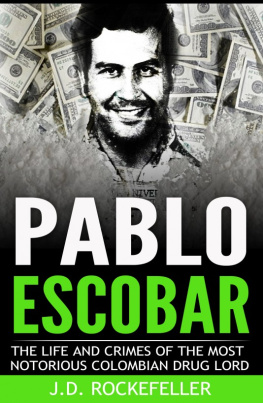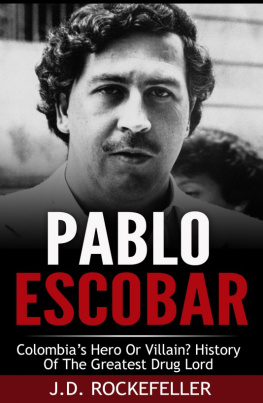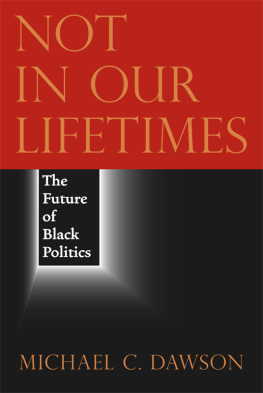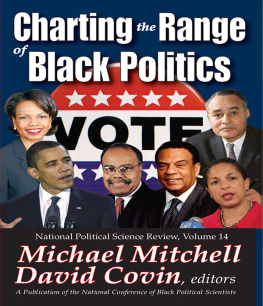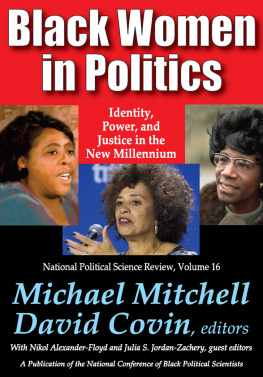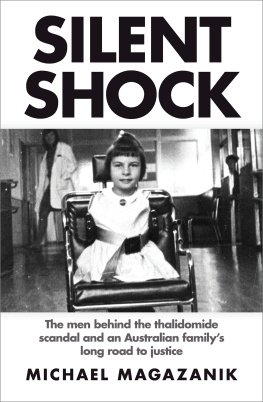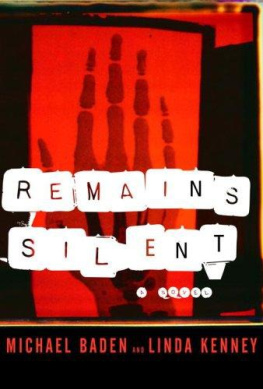Michael Javen Fortner - Black Silent Majority: The Rockefeller Drug Laws and the Politics of Punishment
Here you can read online Michael Javen Fortner - Black Silent Majority: The Rockefeller Drug Laws and the Politics of Punishment full text of the book (entire story) in english for free. Download pdf and epub, get meaning, cover and reviews about this ebook. year: 0, genre: Politics. Description of the work, (preface) as well as reviews are available. Best literature library LitArk.com created for fans of good reading and offers a wide selection of genres:
Romance novel
Science fiction
Adventure
Detective
Science
History
Home and family
Prose
Art
Politics
Computer
Non-fiction
Religion
Business
Children
Humor
Choose a favorite category and find really read worthwhile books. Enjoy immersion in the world of imagination, feel the emotions of the characters or learn something new for yourself, make an fascinating discovery.

- Book:Black Silent Majority: The Rockefeller Drug Laws and the Politics of Punishment
- Author:
- Genre:
- Year:0
- Rating:4 / 5
- Favourites:Add to favourites
- Your mark:
- 80
- 1
- 2
- 3
- 4
- 5
Black Silent Majority: The Rockefeller Drug Laws and the Politics of Punishment: summary, description and annotation
We offer to read an annotation, description, summary or preface (depends on what the author of the book "Black Silent Majority: The Rockefeller Drug Laws and the Politics of Punishment" wrote himself). If you haven't found the necessary information about the book — write in the comments, we will try to find it.
Black Silent Majority: The Rockefeller Drug Laws and the Politics of Punishment — read online for free the complete book (whole text) full work
Below is the text of the book, divided by pages. System saving the place of the last page read, allows you to conveniently read the book "Black Silent Majority: The Rockefeller Drug Laws and the Politics of Punishment" online for free, without having to search again every time where you left off. Put a bookmark, and you can go to the page where you finished reading at any time.
Font size:
Interval:
Bookmark:
MICHAEL JAVEN FORTNER
Black
Silent
Majority
The Rockefeller Drug Laws
and the Politics of Punishment

Cambridge, Massachusetts, and London, England 2015
Copyright 2015 by the President and Fellows of Harvard College
All rights reserved
Jacket photograph: Leonard Freed/Magnum Photos
Jacket design: Tim Jones
978-0-674-74399-1 (alk. paper)
978-0-674-49610-1 (EPUB)
978-0-674-49609-5 (MOBI)
The Library of Congress has cataloged the printed edition as follows:
Fortner, Michael Javen, 1979
Black silent majority : the Rockefeller drug laws and the politics of punishment / Michael Javen Fortner.
pages cm
Includes bibliographical references and index.
1. Discrimination in criminal justice administrationNew York (State) 2. African American criminalsNew York (State) 3. Drug controlNew York (State) 4. African AmericansNew York (State)Social conditions. 5. Middle classNew York (State) I. Title.
HV9955.N7F67 2015
364.1'3365089960730747dc23
2015012136
For Curley
- Introduction
The Reign of Criminal Terror Must Be Stopped Now - Conclusion
Liberal Sentiments to Conservative Acts
I HAVE NEVER BEEN INCARCERATED. But my brother hasfor a long time. I have never been stopped and frisked. Yet as a black man I know how it feels to be watched. I know how it feels to scare strangers for no reason. At the same time, I know crime and the toll it takes on communities. Growing up in Brownsville, Brooklyn, during the height of the crack epidemic I watched as the drug trade killed people and destroyed families. I remember addicts knocking on my door hawking electronics, clothes, and sometimes food they stole from neighbors. I remember sleeping with my wallet under my pillow just in case addicts in my family became desperate for a hit in the midnight hour. I remember the sound of crime. All New Yorkers grow accustomed to the din of sirens, but you never really make peace with the clatter of gunshots. You never get used to violence and insecurity. Criminal acts that show up only once in data setsif they show up at allcan have lasting impacts. I was only a couple of years old when one of my brothers was stabbed to death. I do not remember him, but the pain and sorrow of that day stayed in my home like accumulated dust.
These great works notwithstanding, our new American dilemma is Janus-faced. There are those who have endured the inequities of the penal system, and there are those who have suffered the unfairness of crime. This second face deserves a fair hearing. I started this project because the
Black Silent Majority is neither a memoir nor a polemic. It is a scholarly history of drug policy development in New York State from 1944 to the passage of the Rockefeller drug lawsthe nations most consequential and devastating narcotics control legislationin 1973. It systematically gathers a mlange of materials to adjudicate between contending explanations of crime policy formation. Drawing on a diverse collection of sources, it documents the existence of a black silent majority, a phenomenon insufficiently explored in histories of the 1960s and 1970s, social scientific studies of African American politics, and narratives of mass incarceration. My own experiences prompted me to investigate the role that African Americans played in crime policy development. Whether my memories are representative of the views of millions of working- and middle-class African Americans trapped in dangerous urban ghettos and whether these voices shaped drug policy in New York State are empirical questions that this book pursues. These are controversies than can be resolved only by listening to the black community and tracing the legislative histories of drug policies.
LADIES AND GENTLEMEN, Governor Nelson Rockefeller announced, this is an unusual press conference. On January 23, 1973, five Harlem civic leaders joined New Yorks governor in the state capitals ornate Red Room to voice their support for Rockefellers proposal for new, punitive antidrug measures. During his annual message
They were right.
Given liberals hostility toward the proposed laws and the widespread belief that they would lead to the mass incarceration of small-time pushers and drug addicts from predominantly minority neighborhoods, the appearance of five Harlem leaders at the governors press conference was unexpected. Yet Dempsey insisted that their presence was quite proper. I do not hesitate to say that no people in the State of New York have felt the impact of drug addiction and crime more than we have, he declared. We are from Harlem and from other ghettos in the City of New York and so we have come today because we felt that we had a right to come, that a great moral issue is involved. According to Dempsey, drug dealers and abusers alike had abandoned middle-class values and threatened the lives and liberty of those who faithfully abided by them. While considering the dealers iniquity and skulduggery troubling in itself, Dempsey also held pushers responsible for the violence, disorder, and insecurity caused by drug users trying to finance their next fix. In a searing indictment of pushers, Dempsey plumbed the depths of their immorality:
The hard drug non-addict pusher is cruel, inhuman and ungodly. He knows that hes afflicting his victims but he doesnt care. He knows that hes committing genocide but he doesnt care. He knows that hes creating fear and panic, but that is what he wants, to keep the people afraid so that he can operate. He knows that hes committing a murder a minute through overdoses, homicides, all kinds of physical assaults committed by his slave addicts upon innocent, hardworking people, but he doesnt care.
He added, The non-addict pusher knows too well that his slave hard drug addict pushers are violating the constitutional rights of blacks and whites daily. Freedom of worship, a cherished right, and the right to work and earn a living have been, since the beginning of time, the most honored rights among human beings.
Imposing life sentences on both the hard drug non-addict pusher and his slaves seemed excessive and cruel to many white liberals.
Amid their forceful advocacy, the leaders practiced a bit of linguistic chicanery. Dempsey and the others heaped opprobrium mostly on the non-addict pusher. They considered addict pushersindividuals who sold illegal narcotics to support their habitslaves of big drug dealers. But Rockefellers proposals would
But while Rockefeller dubbed the event unusual and critics looked askance, the alliance on view that day was hardly unprecedented. Four years earlier, the Anti-Crime Committee
The NAACPs report began and ended with a simple yet urgent plea: The reign of criminal terror in Harlem must be stopped now. In between, it described a dire situation, asserting, The lives and property of the people are in constant
The report did not
The following month, Baker, the NAACP committee chairman, testified before the State Joint Committee on Crime and reiterated these views. According to a digest of his testimony, he championed the severe sentencing policies recommended
Baker and the five Harlem civic leaders
Working- and middle-class African Americans in cities like Chicago, Los Angeles, Detroit, Philadelphia, Memphis, New Orleans,
In New York, the black silent majority achieved its greatest legislative victory with the passage of what became known as the Rockefeller drug lawsa set of statutes only slightly less punitive than the proposals the governor had initially offered. While white liberals fought for rehabilitation and smarter policing strategies focused on large-scale drug dealers, the black silent majority supported the regulation and removal of the poor, whom they blamed for urban blight and violence in the streets. After tilting the discursive terrain in the direction of racial equality during the struggles of the civil rights movement, working- and middle-class African Americans tilted it in favor of punitive crime policies and against economic justice for the urban black poor. As a result, the black silent majority created an important opportunity for the ambitious governor to achieve his own goals and laid the groundwork for mass incarceration. This book tells that uncomfortable story.
Next pageFont size:
Interval:
Bookmark:
Similar books «Black Silent Majority: The Rockefeller Drug Laws and the Politics of Punishment»
Look at similar books to Black Silent Majority: The Rockefeller Drug Laws and the Politics of Punishment. We have selected literature similar in name and meaning in the hope of providing readers with more options to find new, interesting, not yet read works.
Discussion, reviews of the book Black Silent Majority: The Rockefeller Drug Laws and the Politics of Punishment and just readers' own opinions. Leave your comments, write what you think about the work, its meaning or the main characters. Specify what exactly you liked and what you didn't like, and why you think so.

